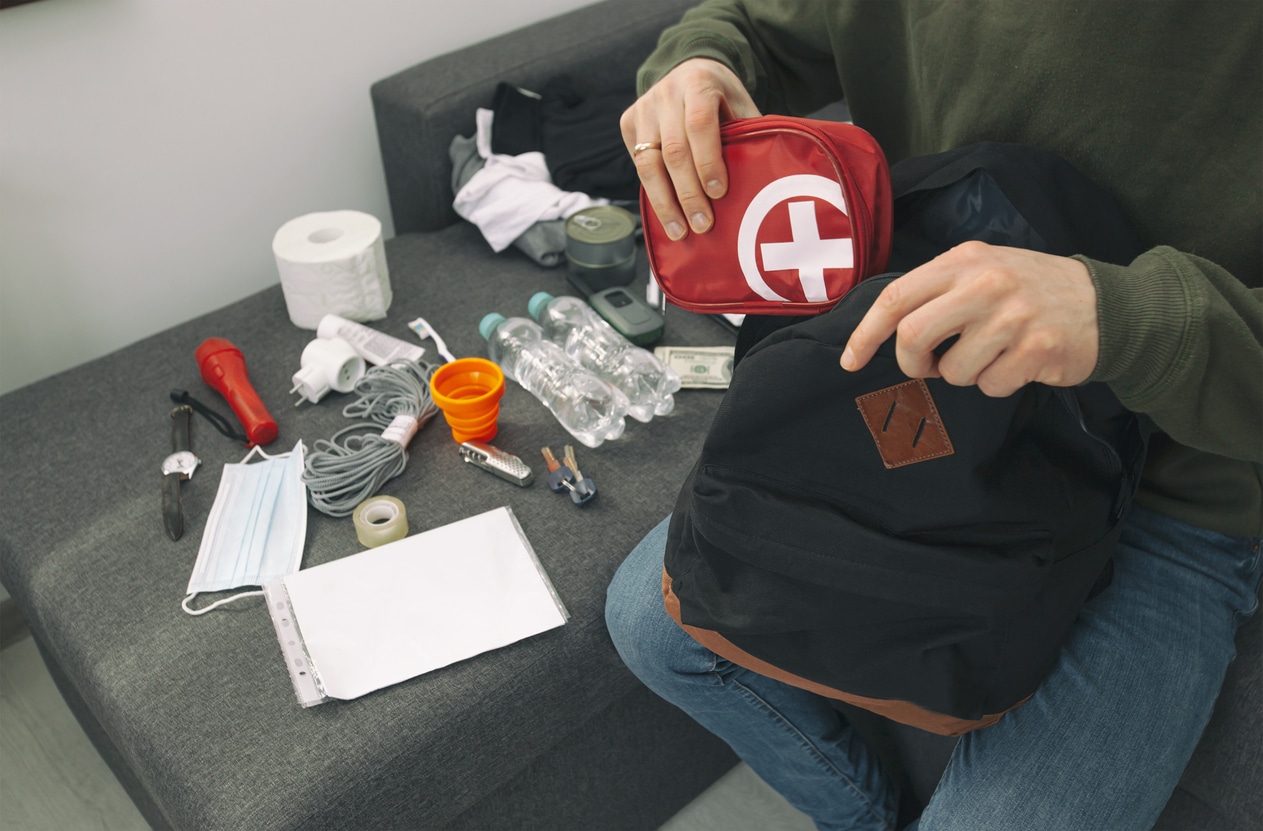Emergencies can strike at any moment, and being prepared is crucial to protect your and your family’s safety. For individuals with hearing loss, there are unique challenges to consider when it comes to emergency preparedness. Let’s look at some unique challenges those with hearing loss encounter in emergencies and a couple of ways you can prepare.
Understanding the Challenges
One in eight people in the United States aged 12 and over has hearing loss in both ears. Hearing loss presents unique communication and safety considerations during emergencies. Many emergency alerts rely on auditory cues, such as sirens or verbal announcements, making it difficult for those with hearing loss to receive timely information.
Tips for Emergency Communication

To bridge the communication gap, there are a few technologies and strategies to help prepare you for an emergency with hearing loss. Some options include:
- Alternative emergency alerts. Consider using visual or tactile devices to notify individuals of an emergency, such as bed shakers, strobe lights or vibrating alarm clocks.
- Text alerts: Sign up for text or email alerts on your mobile devices to ensure you aren’t missing important safety information.
Creating an Emergency Preparedness Plan
Having a well-thought-out emergency preparedness plan is essential for those with hearing loss. Employ the following checklist to ensure you are adequately prepared:
- Communication plan. Establish a communication strategy with family members, friends and emergency responders. Inform them about your hearing loss and determine the best ways to stay connected during emergencies.
- Emergency kit. Prepare an emergency kit with essential supplies like hearing aid batteries, a flashlight, a notepad, a pen and a portable charger or generator for your communication devices and hearing aids. Consult the American Red Cross of New Braunfels for more tips on packing an emergency kit.
- Important documents. Keep copies of essential documents, such as identification cards, medical records and emergency contact information, in a safe and easily accessible place. For extra protection, keep documents in a sealed, watertight envelope.
- Use hearing aids. Hearing aids are an excellent addition to every emergency. Wear your hearing aids at all times during an emergency to ensure you aren’t missing important information. If you need to take your devices out for any reason, place them immediately in a waterproof case and keep them on your person.
By designing a communication plan, preparing an emergency kit, collecting your important documents and wearing hearing aids, you can help ensure your safety during an emergency.
To learn more about accommodating your hearing loss, contact The ENT Center of New Braunfels today to make an appointment with one of our specialists.